The Ferrari 512 BB: A Forgotten Manifesto
 Friday, December 30, 2011 at 12:38AM
Friday, December 30, 2011 at 12:38AM 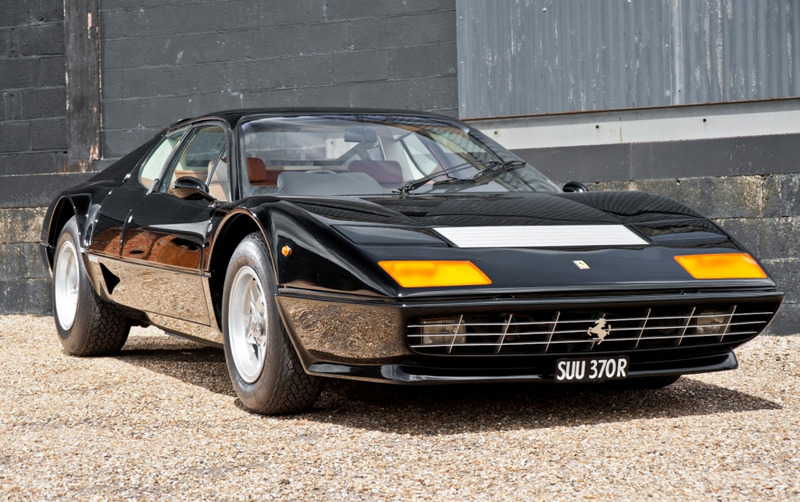 To say that the 512 BB was a seminal design for Ferrari might meet with raised eyebrows from many people. After all, it's rather an unsung car compared to its more plentiful V8 siblings and its more flamboyant red-headed Flat-12 progeny of the 80s. Because it replaced the Daytona, and thus closed the era of great front-engined V-12 sports cars for Ferrari (until the 550 Maranello came out in 1996) one might say that certain Ferrari purists look at the 512BB as the regrettable end of an era rather than the start of a new 25 year epoch. Though the 512BB has certainly become a collectible car in its own right, it's still far less sought after than the Daytona. And yet it broke far more boundaries than that car, and had long-lasting impact on the entire design direction of Ferraris for the next two decades. First of all, the 512 was Ferrari's first flat 12 production car, as well as Ferrari's first mid-engined flagship supercar (unlike the mid-engined 246 Dino, which had a much smaller V6 and never wore the prancing horse.) Aside from these mechanical aspects, the 512's design cues constituted an often-ignored manifesto work that set the tone for all subsequent Ferrari sports cars of the 70s and 80s.
To say that the 512 BB was a seminal design for Ferrari might meet with raised eyebrows from many people. After all, it's rather an unsung car compared to its more plentiful V8 siblings and its more flamboyant red-headed Flat-12 progeny of the 80s. Because it replaced the Daytona, and thus closed the era of great front-engined V-12 sports cars for Ferrari (until the 550 Maranello came out in 1996) one might say that certain Ferrari purists look at the 512BB as the regrettable end of an era rather than the start of a new 25 year epoch. Though the 512BB has certainly become a collectible car in its own right, it's still far less sought after than the Daytona. And yet it broke far more boundaries than that car, and had long-lasting impact on the entire design direction of Ferraris for the next two decades. First of all, the 512 was Ferrari's first flat 12 production car, as well as Ferrari's first mid-engined flagship supercar (unlike the mid-engined 246 Dino, which had a much smaller V6 and never wore the prancing horse.) Aside from these mechanical aspects, the 512's design cues constituted an often-ignored manifesto work that set the tone for all subsequent Ferrari sports cars of the 70s and 80s.
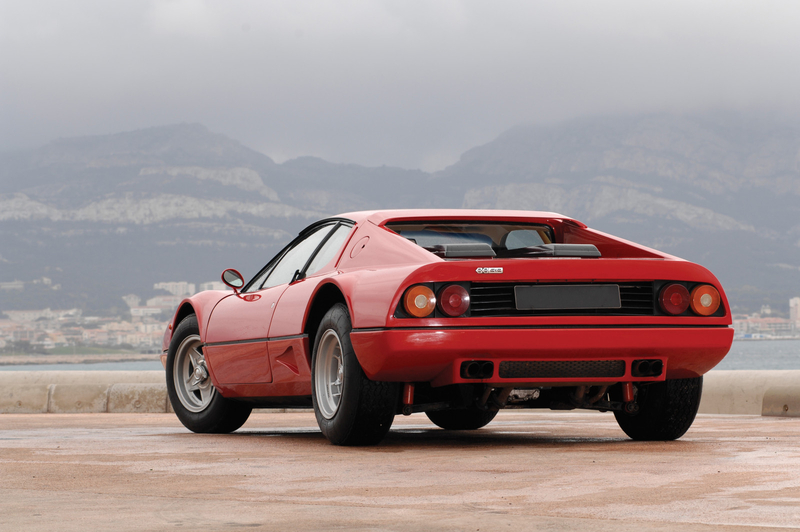 Like many classic designs that today are perceived by the general public as "very 80's looking" the 512 was actually released as far back as 1972, and its design roots go back to the late 1960s. The thematic elements of the 512 BB can be directly traced to two show cars by Pininfarina: The P6 Berlinetta of 1968, and the 512 Modulo of 1970.
Like many classic designs that today are perceived by the general public as "very 80's looking" the 512 was actually released as far back as 1972, and its design roots go back to the late 1960s. The thematic elements of the 512 BB can be directly traced to two show cars by Pininfarina: The P6 Berlinetta of 1968, and the 512 Modulo of 1970.
A close look at the P6 shows proportion and massing that is very close to the eventual silhouette of the 512BB. However, the details, such as the creased body side and the flying buttress rear window treatment were already well established Pininfarina styling elements that were seen on many cars such as the 246 Dino. The same is true of the air intake carved out of the door panel, which was on the Dino and several other Ferraris. Yet this particular execution of the scooped out intake would find its way into the later 308 GTB. Other details such as the "venetian blind" detailing were thankfully not found on later production Ferraris (Bertone more successfully executed a similar detail two years later, on the Urraco).
The staggeringly beautiful and utterly unique 512 Modulo concept (above) of 1970 was the other source of inspiration for the 512BB. Although the Modulo is much lower and differently proportioned from the production car, there are many styling elements which saw their way to production. Most notable is the horizontal "reflection line" separating the upper and lower portions of the bodywork with a band of contrasting color (usually black on production Ferraris). The "reflection line" is a central thematic element of the Modulo that makes its first appearance in the 512, and carries through every subsequent Ferrari Berlinetta until the F360 Modena eliminated it entirely. The other most obvious cues carried over from the Modulo to the 512BB are the artfully flared rear fender bulges. Looking at these cars next to each other (below) one may say, ok that is where the similarities end. And they might be right...
I personally never associated either of these show cars directly with the 512BB, but I recently came across some fascinating sketches from the Pininfarina archives (in the book Pininfarina:Prestige and Tradition, Edita, 1980) which clearly show the designers grappling with how to translate the themes of the Modulo to a production-based reality. These sketches clearly bear witness to a morphing process in which the Modulo's space age lines gradually were refined and softened into what would become the 512BB. In particular, note how the Modulo's unique window treatment is explored and gradually changes shape through the iterations.
In the end, the 512 comes out looking quite different from the Modulo, but it nontheless set the tone for all mid-engined Ferraris to come for the next 20-plus years.
The aforemorentioned "reflection line" becomes a standard thematic element, as does the 512BB's modernistic execution of the egg crate grille. This grille treatment was recycled and revisited continuously on the 308, the 328, the Mondial, the 288 GTO, and other models throughout the 80s and 90s. The tail light cluster treatment on the 512BB, while hardly the first round tail lights on a Ferrari, are nonetheless archetypal for the designs that followed, and the horizontal grille between them even presages the eventual tail treatment of the Testarossa. When seen from a side view, it's clear that the nose treatment and raked A pillar formed the basis for the 308 GTB, the 328, and the 288 GTO.
Now that we have established both the design foundations of the 512BB as well as its importance in setting the tone for following models, one might ask why the car never achieved cult status, and also one might rightfully question whether Enzo himself even liked it. After all, when it came time for the Dino 308 GT4, which was to be Ferrari's higher volume bread and butter, he gave the job to Bertone (who did a fantastic job, i might add). And yet by the time the 308 GTB came around a few years after, one must assume Enzo had warmed, to the styling themes first seen on the 512BB. And if sales of the 308 and 328GTB and GTS series were any indication, so had the buying public. I can't guess as to why the car never attained cult status, but to my eye it's a true classic that has been overlooked due to the mythical status attained by its immediate forebears and the over-representation of the cars it spawned.
 512BB,
512BB,  Design History,
Design History,  Ferrari,
Ferrari,  Modulo,
Modulo,  P6,
P6,  Pininfarina in
Pininfarina in  History
History 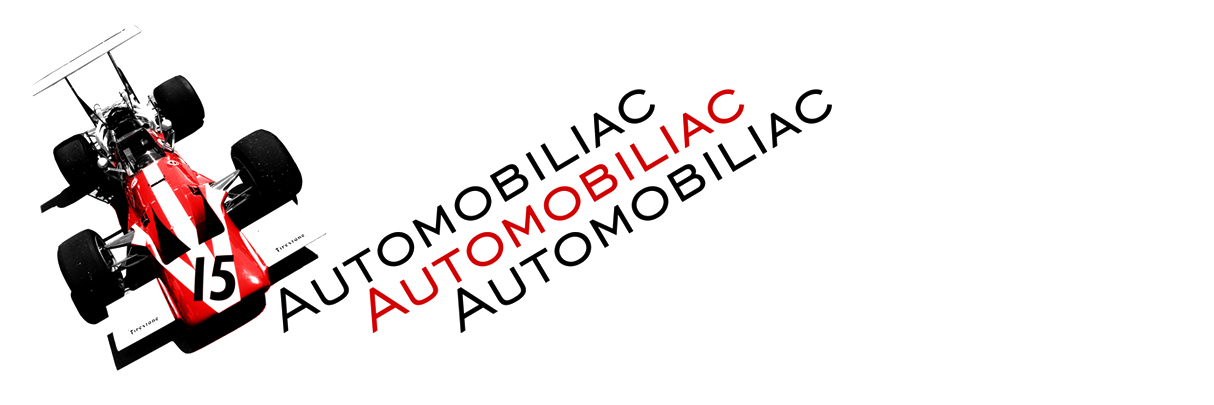
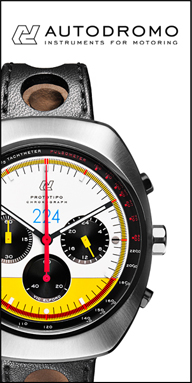
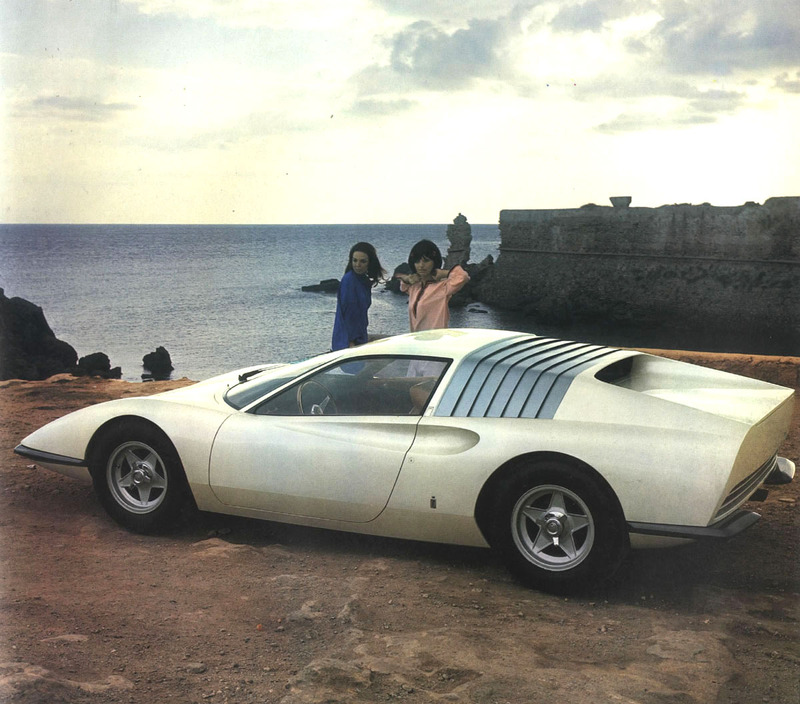
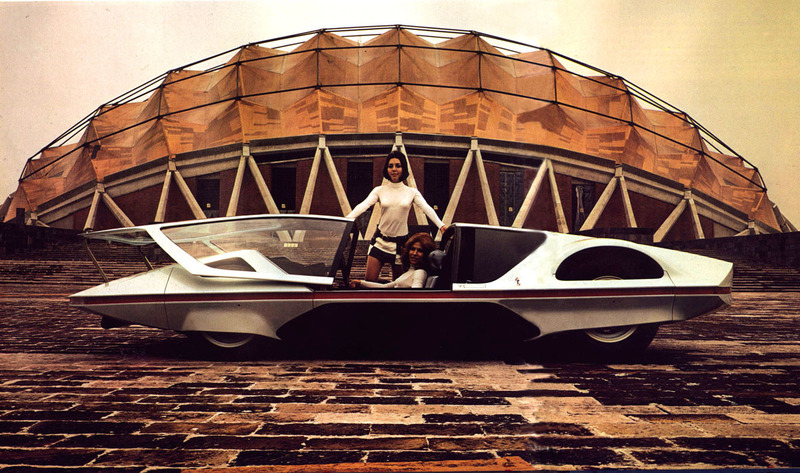
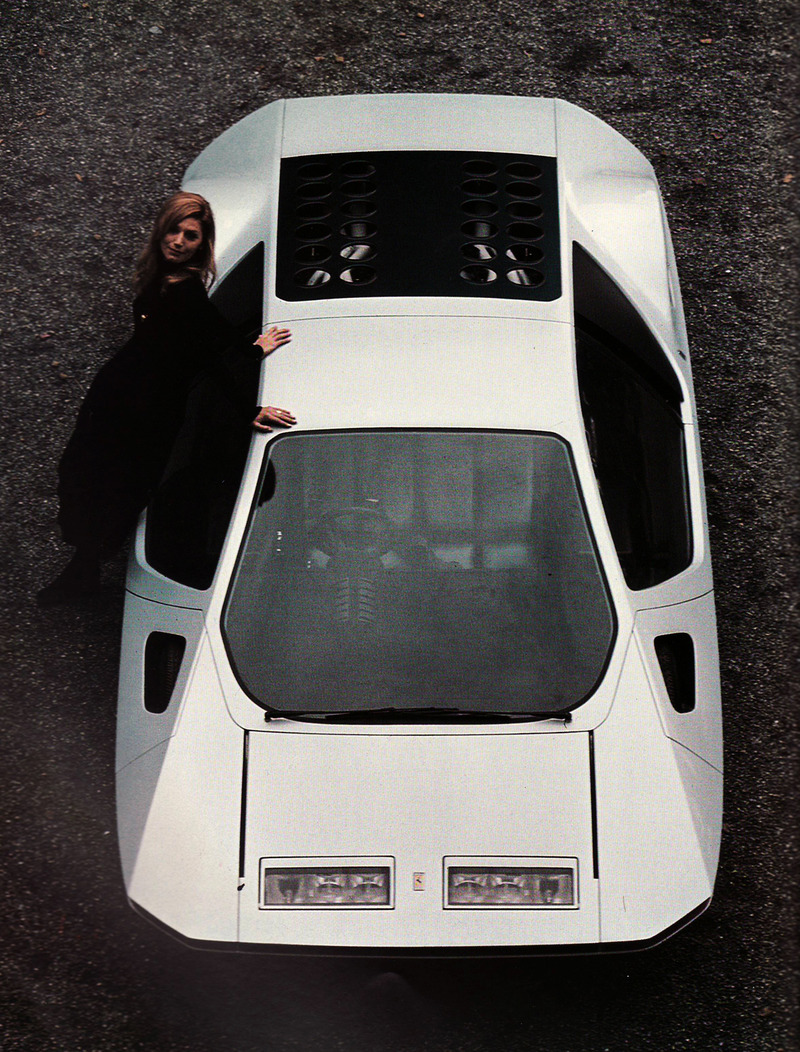
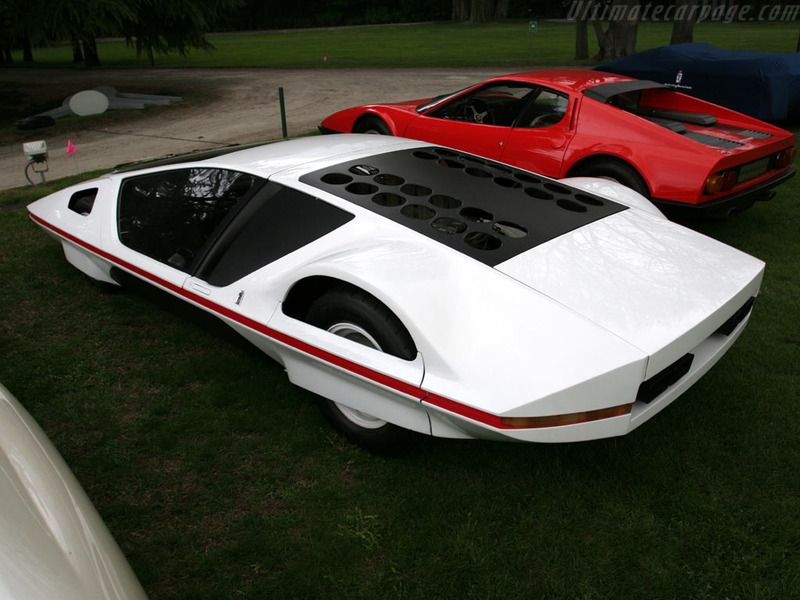
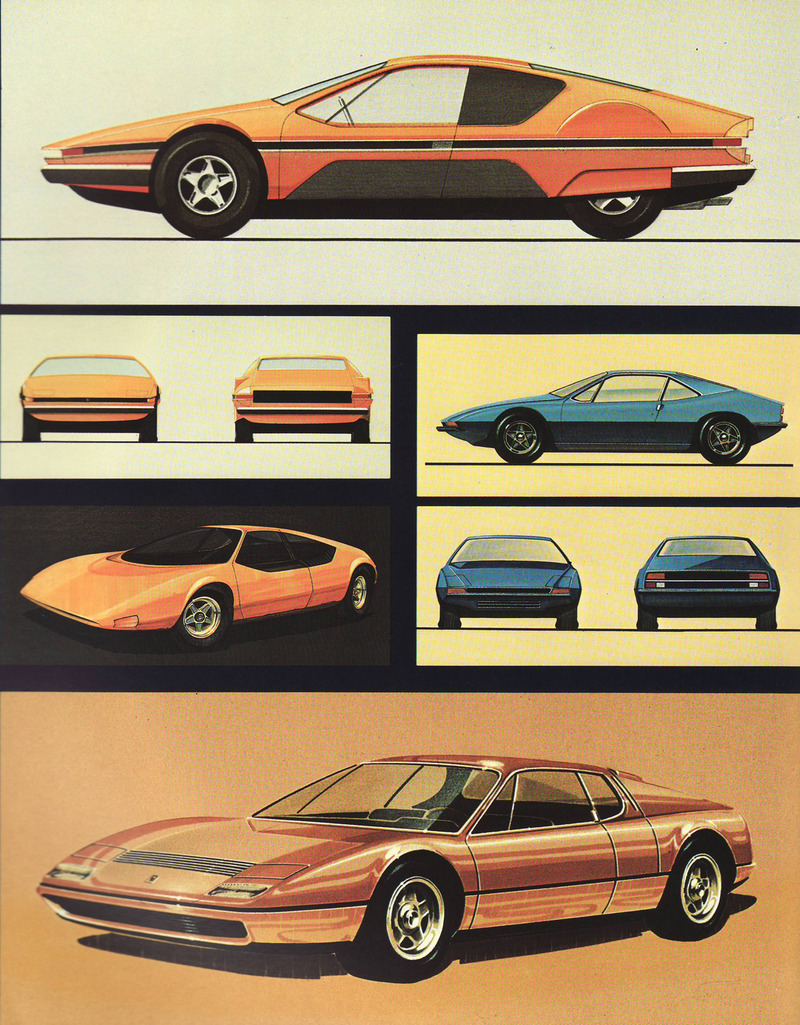
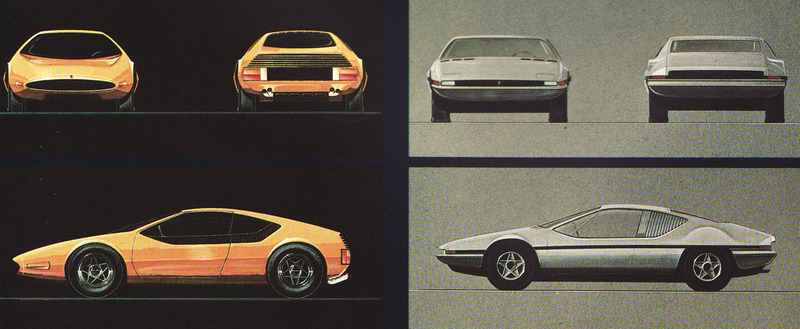
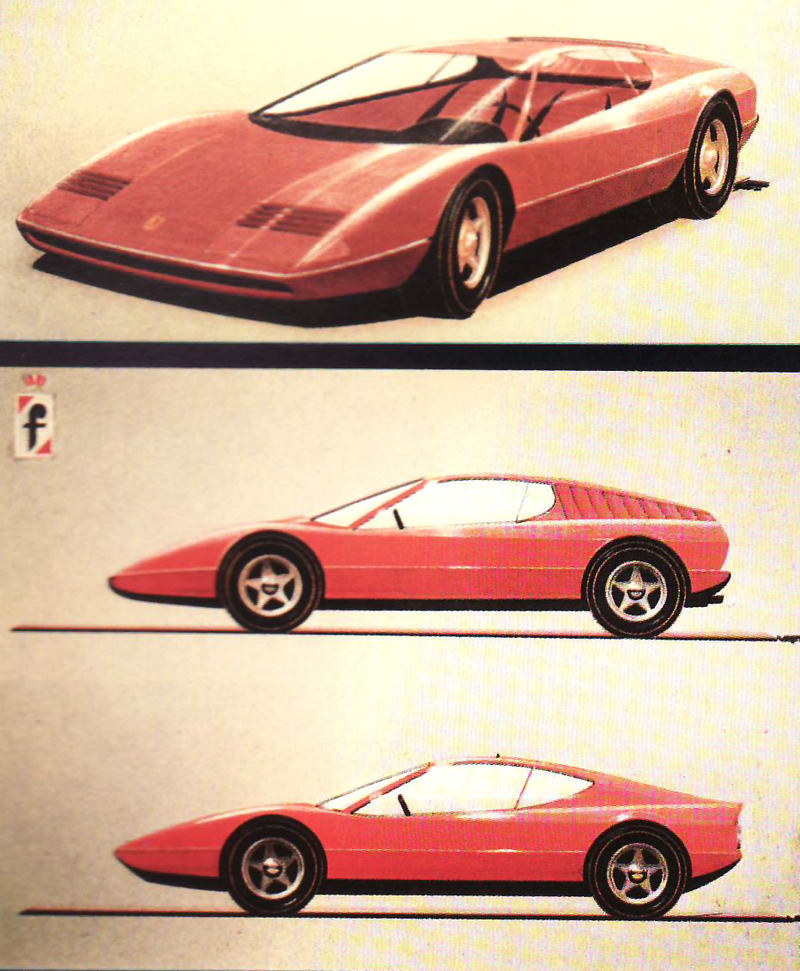
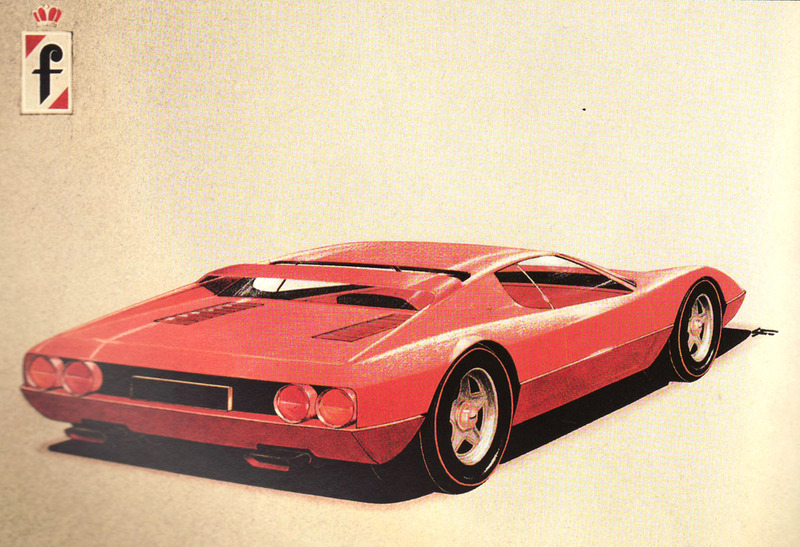
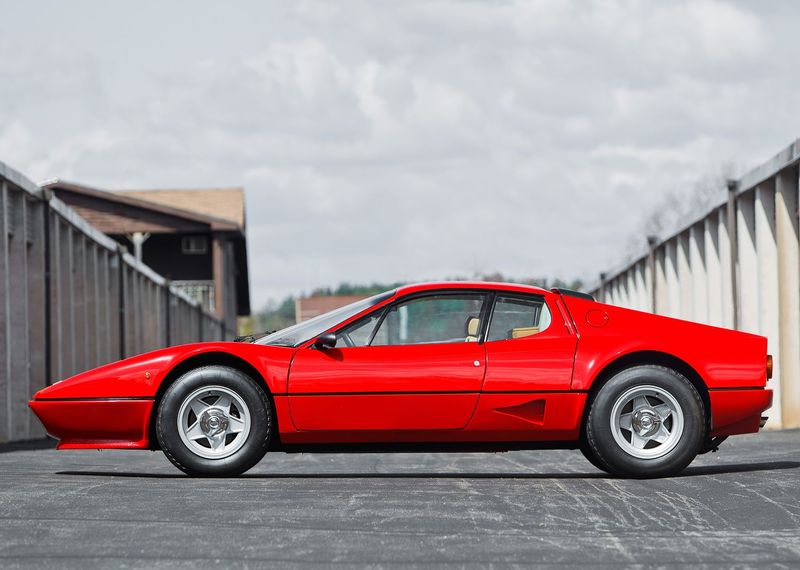
Reader Comments (9)
" Ferrari by Vignale", Marcel Massini, Giorgio Nada Editore, Milano, 1993), I've always liked the BB, more, in fact, than any of the mid-engined Ferraris that followed, except perhaps the Dino.
I had seen pictures, surely, but imagine the first encounter, at that age, with this amazing car.
All the more amazing was that this took place in Mexico City.
By the way, the shot of the Modulo is at the Mexico City Sports Palace!
Mexico was a place at the time were imported cars, let alone Ferraris, were a truly rare sight.
This car, as with all fine European imports, belonged to a very wealthy guy, obviously.
But I grew up around cars, my grandfather had a fairly sizable collection. But he was almost strictly into English cars.
Nothing wrong with Jags, his main obsession. But for me, Ferraris were just in a different plane altogether.
I got to visit the car with my friend on about three or four occasions, but it was always static, locked up in the garage. Never saw it turn a wheel or heard it's glorious noise.
I am now 40, and no less enamored with the Ferraris of my era.
I don't really care for current Ferraris. The last Ferrari I liked was the 550 Maranello.
I am quite content to see that it is still an underareciated car.
Makes me think I may actually be able to get one one day!
I could settle for a 308 GT4 or a 412i as well.
Happy Holidays.
Tom Tanner/Scale Designs/Ferrari Expo 2012-Chicago March 17th 2012-Carrera Panamericana 1950-1954 theme this year at the Expo.
Thanks B., I read it last week but couldn't comment then. Had to come back to leave this comment.
I didn't like the 512bb when I was a kid, I guess it was just too much "yesterday's news". It is now possibly my favourite Ferrari, one that I could treat like one. One I would like to push harder and harder on a mountain climb.
Last time I had my chance to sit into one I was at RM Auctions, in London. It was the end of a long day and had a couple of glasses of prosecco. So when the door closed I started to panic. I must have spent 15 minutes looking for the handle... with a glass in one hand and three books in the other.
In case you are wondering... yes, I had to lock and have a passerby to free me form the outside.
Still possibly my favourite Ferrari thou. I took it as a "We are made for each other, I'll never let you go away" form the car.
A silver on black 512BBi was the first Ferrari I ever sat in (at about 14yr old). I remember reaching from the driver's seat to the passenger seat to open the door for my brother...and not being able to reach :) It was so much wider than dad's car...
Love 'em.